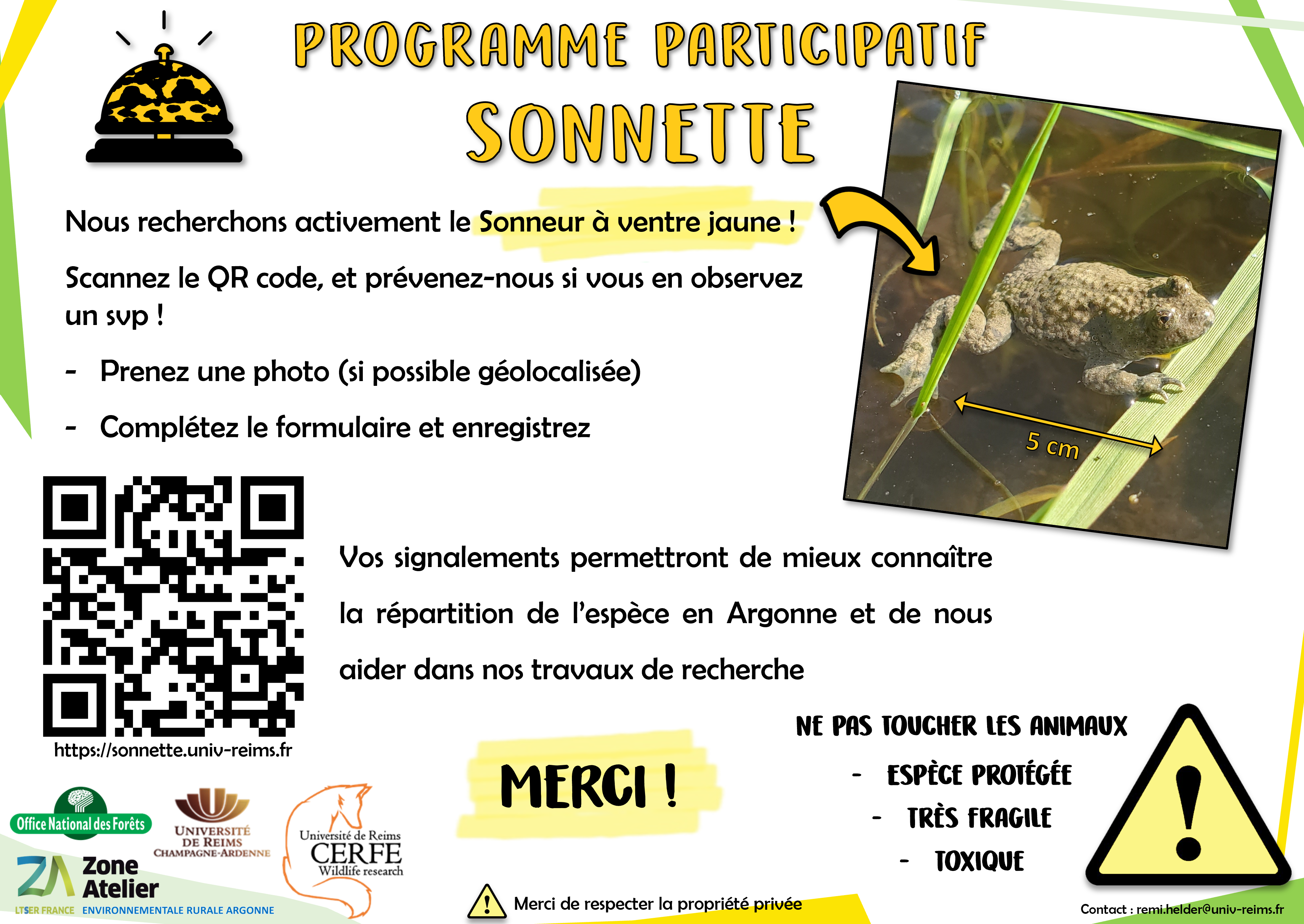CERFE Awarded the See-Life Label to Protect the Yellow-Bellied Toad
A major achievement for the Centre for Research and Training in Eco-Ethology (CERFE): its monitoring program for the Yellow-Bellied Toad (Bombina variegata) has just been awarded the See-Life label, granted by the CNRS (Institute of Ecology and Environment). This national recognition highlights years of dedicated work to better understand and protect this small, rare amphibian, emblematic of wet forests. The project is part of ZARG, the Argonne Workshop Zone, a scientific cornerstone that explores the ecological, environmental, and socio-economic dimensions of the unique forested territory of Argonne.
The program, officially led by the Institute of Molecular Chemistry of Reims (ICMR, CNRS UMR 7312) under the responsibility of Stéphanie Sayen, focuses on the Yellow-Bellied Toad population living in the La Croix-aux-Bois forest massif, a forestry production site in the Ardennes.
A label for biodiversity
Launched in 2023, the See-Life label aims to support scientific projects around the world that monitor biodiversity over the long term. Today, 78 projects are labeled, including 14 new ones in 2025, selected from 56 applicants. The label is awarded for five years (renewable) with financial support of €10,000 per year—a real boost to strengthen field actions.
Why monitor this little toad?
The Yellow-Bellied Toad, with its bright yellow and black-spotted belly, is a protected species that has become rare, mainly due to the gradual disappearance of its aquatic habitats. By studying its populations year after year, CERFE researchers hope to better understand its needs, vulnerabilities, and the interactions it maintains with its socio-ecosystem. The ultimate goal is to find sustainable solutions to safeguard populations in the Argonne massif by adapting, through a collaborative approach, the activities of the various forest stakeholders.
Based in Boult-aux-Bois in the Ardennes, CERFE is URCA’s field station dedicated to studying animal behavior in natural habitats. Its team conducts field research and trains many students in biodiversity issues. Today, it is fully recognized as a key player in eco-ethology research.
“In a world undergoing profound change, I am pleased that the CNRS is supporting ecological research by awarding the SEE-Life label,” said Rémi Helder, Director of the Centre for Research and Training in Eco-Ethology (URCA-CERFE).
With this distinction, CERFE and ICMR reaffirm their commitment to tackling local environmental issues and remind us how valuable field science is for protecting the species that inhabit our forests.
And if one day you come across a Yellow-Bellied Toad, don’t hesitate to record its location here: https://sonnette.univ-reims.fr/
